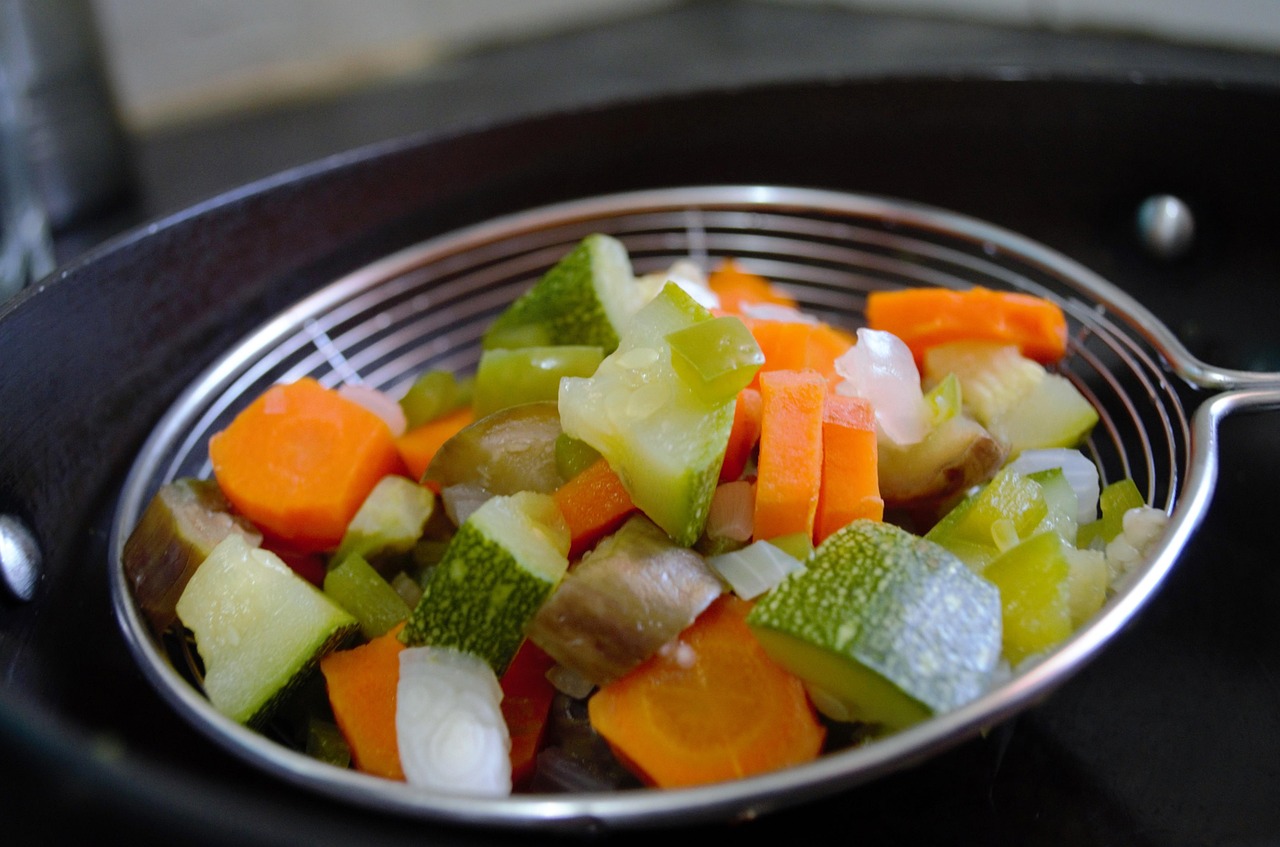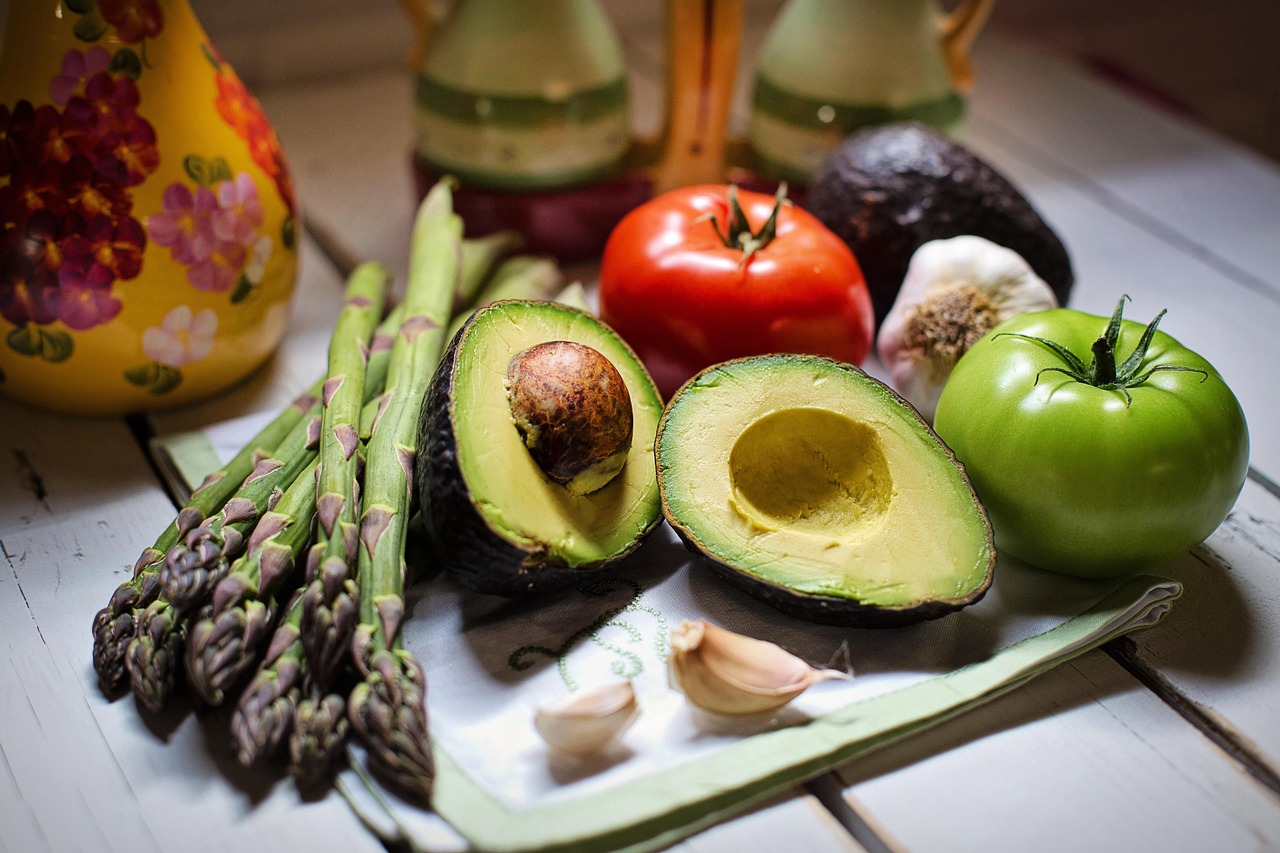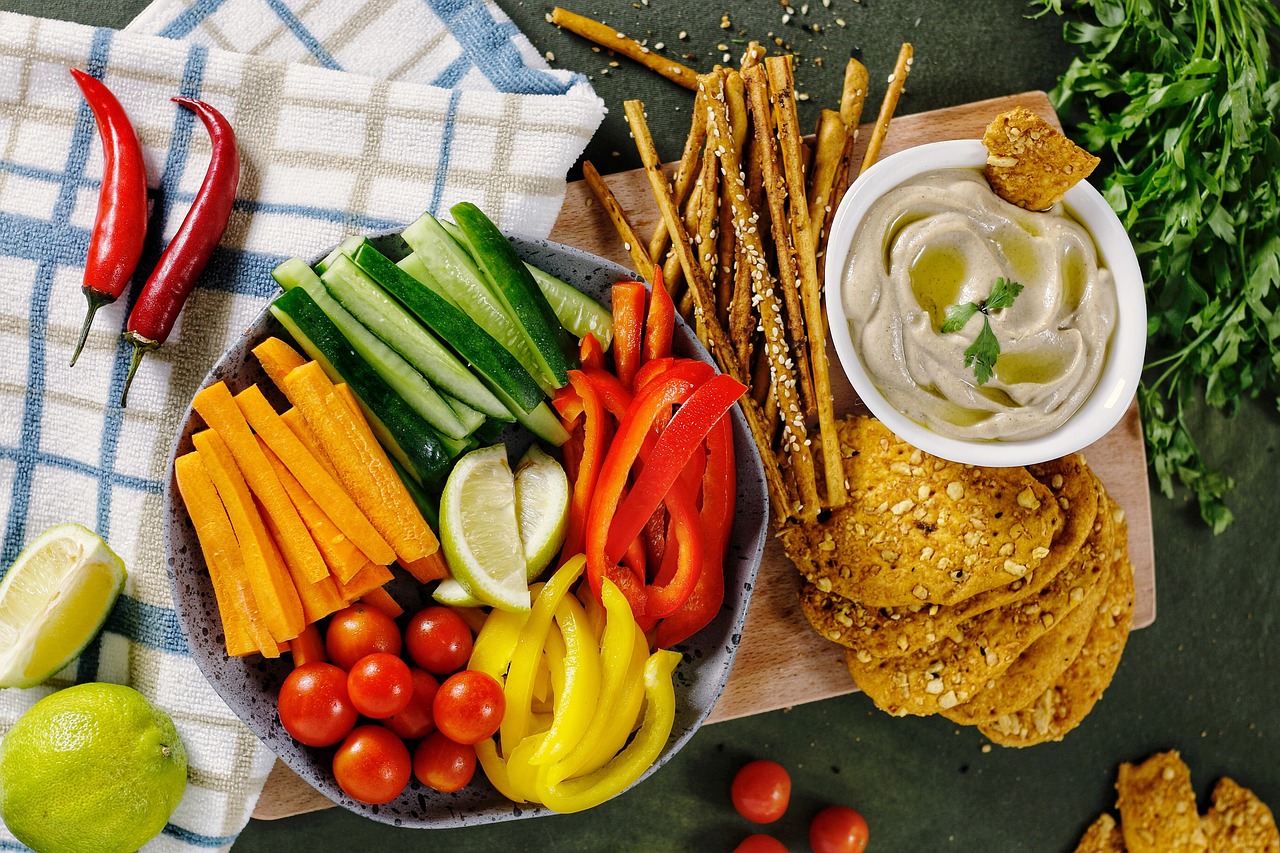For this season, consider planting gourmet veggies like heirloom tomatoes, rainbow carrots, specialty peppers, purple cauliflower, gourmet zucchini, and French green beans. These options are not only flavorful but also add vibrant colors and unique tastes to your garden and kitchen.
Growing your own vegetables can be a rewarding experience. It provides access to fresh produce right at your doorstep. Gourmet vegetables offer an opportunity to elevate your culinary creations. They often have superior taste and texture compared to standard varieties. Additionally, many gourmet veggies are visually stunning, adding beauty to your garden and plate.
This season presents an excellent opportunity to explore a variety of gourmet vegetables. Each selection has unique growing requirements and benefits. Understanding these aspects can help ensure a successful gardening experience. Whether you have a large backyard or a small balcony, there is a gourmet veggie option for you. Below are some exceptional choices that will enhance your garden and dining experience.
Heirloom Tomatoes

Heirloom tomatoes are known for their rich flavors and unique shapes. Unlike conventional hybrids, these tomatoes have been cultivated for generations. This breeding process results in a diverse range of colors, sizes, and tastes. They thrive in warm weather and require plenty of sunlight.
- Varieties: Cherokee Purple, Brandywine, Green Zebra
- Growing Conditions: Full sun, well-drained soil
- Harvest Time: 70-90 days after planting
Rainbow Carrots
Rainbow carrots are a colorful twist on the traditional orange carrot. They come in various colors, including purple, yellow, and white. Each color offers distinct flavors and nutritional benefits. Rainbow carrots grow well in loose, sandy soil and can be harvested throughout the summer and fall.
- Nutritional Benefits: High in fiber and vitamins
- Growing Conditions: Loose soil, full sun
- Harvest Time: 60-75 days after planting
Specialty Peppers
Specialty peppers add heat and flavor to any dish. Varieties such as jalapeños, poblano, and shishito offer different levels of spice. These peppers are versatile in cooking, from salsas to stir-fries. They flourish in warm temperatures and require consistent watering for optimal growth.
- Popular Varieties: Habanero, Fresno, Banana Pepper
- Growing Conditions: Warm climate, well-drained soil
- Harvest Time: 70-90 days after planting
Purple Cauliflower
Purple cauliflower is not only visually appealing but also packed with nutrients. Its vibrant color comes from anthocyanins, which are powerful antioxidants. This vegetable is a cool-season crop that prefers cooler temperatures for optimal growth.
- Nutritional Benefits: High in vitamins C and K
- Growing Conditions: Cool temperatures, fertile soil
- Harvest Time: 70-80 days after planting
Gourmet Zucchini
Gourmet zucchini varieties like ‘Costata Romanesco’ and ‘Eight Ball’ offer unique flavors and appearances. These zucchinis can be used in numerous dishes, from salads to baked goods. They thrive in warm weather and should be picked regularly to encourage further growth.
- Varieties: Costata Romanesco, Eight Ball
- Growing Conditions: Full sun, nutrient-rich soil
- Harvest Time: 50-60 days after planting
French Green Beans
French green beans, or haricots verts, are slender and tender. They have a delicate flavor that complements many meals. These beans grow quickly and can be harvested multiple times throughout the growing season. They prefer full sun and consistent moisture.
- Nutritional Benefits: Low in calories, high in fiber
- Growing Conditions: Full sun, well-drained soil
- Harvest Time: 50-60 days after planting
With these gourmet vegetable options, gardeners can enjoy a fruitful harvest full of flavor and nutrition. Each variety brings something special to the table, making them worthy additions to any garden this season.
Growing Tips for Gourmet Vegetables
Successfully cultivating gourmet vegetables requires attention to detail and an understanding of their specific needs. From soil preparation to watering schedules, each step is crucial for achieving a bountiful harvest. Below are essential tips for growing the gourmet veggies mentioned previously.
Soil Preparation
Healthy soil is the foundation of any successful garden. For gourmet vegetables, it is essential to enrich the soil with organic matter. This can include well-rotted manure, compost, or peat moss. These amendments improve soil structure and provide vital nutrients.
- Test Soil pH: Most gourmet veggies thrive in slightly acidic to neutral soil (pH 6.0-7.0).
- Drainage: Ensure proper drainage to prevent waterlogging, which can lead to root rot.
- Fertilization: Use a balanced fertilizer before planting to provide necessary nutrients.
Watering Techniques
Watering is another critical aspect of vegetable gardening. Different vegetables have varying water needs, but generally, it is best to water deeply and infrequently rather than shallowly and often. This encourages deep root growth.
- Frequency: Watering should be done once or twice a week depending on rainfall and temperature.
- Morning Watering: Watering early in the day reduces evaporation and fungal diseases.
- Mulching: Apply mulch to help retain moisture and suppress weeds.
Pest Control Strategies

Pests can pose significant challenges when growing gourmet vegetables. Implementing effective pest control strategies is essential for maintaining plant health and ensuring a good yield. Here are some methods to consider:
- Companion Planting: Planting certain vegetables together can help deter pests. For example, marigolds can repel nematodes and aphids.
- Natural Predators: Encourage beneficial insects like ladybugs and lacewings that feed on harmful pests.
- Organic Pesticides: If necessary, use organic options like neem oil or insecticidal soap to manage pest populations.
Harvesting Techniques
Harvesting your gourmet vegetables at the right time is crucial for maximizing flavor and nutritional value. Each variety has its optimal harvest period, which can vary based on growing conditions.
Best Practices for Harvesting
- Gentle Handling: Handle vegetables with care to avoid bruising or damaging them during harvest.
- Timing: Harvest in the morning when temperatures are cooler for better quality.
- Use Clean Tools: Always use clean, sharp tools to cut vegetables. This prevents the spread of disease.
Signs of Ripeness
Understanding when your gourmet veggies are ripe can be tricky. Here are some signs to look for:
- Heirloom Tomatoes: Colorful and slightly soft to the touch.
- Rainbow Carrots: Size should be approximately ½ inch in diameter.
- Purple Cauliflower: Tight curds that are vibrant in color.
Culinary Uses of Gourmet Vegetables
Once harvested, gourmet vegetables can transform your cooking. Their unique flavors and textures enhance various dishes. Here are some creative culinary uses for the veggies discussed:
Heirloom Tomatoes
Heirloom tomatoes can be used in numerous dishes:
- Salads: Fresh heirloom tomato salads with basil and mozzarella.
- Sauces: Rich pasta sauces made from roasted heirloom tomatoes.
- Sandwiches: Slices on sandwiches or burgers for added flavor.
Rainbow Carrots
The colorful hues of rainbow carrots make them visually appealing in dishes:
- Roasted: Roasting brings out their natural sweetness.
- Raw: Crunchy sticks served with dips or in salads.
- Pureed: Carrot puree as a side dish or soup base.
Purple Cauliflower
Purple cauliflower can add color and nutrition to your meals:

- Stir-Fries: Quickly stir-fried with garlic and soy sauce.
- Casseroles: Baked in gratins or casseroles.
- Pureed Soups: Creamy purple cauliflower soup for a unique presentation.
The culinary possibilities with these gourmet vegetables are endless. Their fresh flavors can inspire creativity in the kitchen while promoting healthy eating habits.
Nutrition and Health Benefits of Gourmet Vegetables
Incorporating gourmet vegetables into your diet not only enhances flavor but also provides numerous health benefits. These vegetables are often packed with vitamins, minerals, and antioxidants that contribute to overall health. Below are some of the key nutritional benefits of the gourmet veggies highlighted earlier.
Heirloom Tomatoes
Heirloom tomatoes are not just delicious; they are also a great source of essential nutrients:
- Vitamins: High in vitamin C, which boosts the immune system.
- Antioxidants: Contains lycopene, a powerful antioxidant linked to heart health.
- Low-Calorie: Naturally low in calories, making them a great addition to weight loss diets.
Rainbow Carrots
Rainbow carrots offer a variety of health benefits due to their vibrant colors:
- Beta-Carotene: Rich in beta-carotene, especially the orange and yellow varieties, promoting good vision.
- Fiber: High fiber content aids digestion and helps maintain gut health.
- Antioxidants: Purple carrots contain anthocyanins, which may reduce inflammation.
Specialty Peppers
Specialty peppers are not only flavorful but also offer a range of health benefits:
- Vitamin A: High in vitamin A, which is essential for eye health.
- Capsaicin: The compound that gives peppers their spice may boost metabolism and aid weight loss.
- Rich in Nutrients: Contains vitamins C and B6, important for immune function and energy production.
Purple Cauliflower
Purple cauliflower is unique not only in color but also in its nutritional profile:
- Cancer-Fighting Properties: Contains glucosinolates, which may have anti-cancer effects.
- High in Fiber: Supports digestive health and can aid in weight management.
- Vitamins and Minerals: Excellent source of vitamins C and K, which are crucial for bone health and immune support.
Gourmet Zucchini
Gourmet zucchini is versatile and packed with nutrients:
- Hydration: High water content helps keep you hydrated.
- Nutrient Dense: Low in calories yet high in vitamins A and C, as well as potassium.
- Antioxidants: Contains lutein and zeaxanthin, which are beneficial for eye health.
French Green Beans
French green beans are not only delicious but also very nutritious:
- Low Calorie: Low in calories while being high in fiber, making them an excellent choice for weight management.
- Vitamins: Good source of vitamins A, C, and K, essential for various bodily functions.
- Minerals: Contains iron and calcium, important for blood circulation and bone strength.
Storing and Preserving Gourmet Vegetables

Proper storage is crucial for maintaining the freshness and flavor of gourmet vegetables. Here are some effective methods for storing each type of vegetable discussed.
Heirloom Tomatoes
To store heirloom tomatoes effectively:
- Room Temperature: Store at room temperature until fully ripe for the best flavor.
- Avoid Refrigeration: Refrigeration can alter the texture and flavor; only refrigerate if overripe.
Rainbow Carrots
The best way to store rainbow carrots is as follows:
- Crisper Drawer: Store in the refrigerator’s crisper drawer wrapped in a damp paper towel.
- Avoid Moisture: Keep them dry to prevent rot; wash only before use.
Specialty Peppers
For keeping specialty peppers fresh:
- Refrigeration: Store in a paper bag or perforated plastic bag in the fridge.
- Avoid Moisture: Keep them dry to extend shelf life.
Purple Cauliflower
Purple cauliflower can be stored effectively by following these tips:
- Crisper Drawer: Store in the refrigerator’s crisper drawer wrapped in a damp paper towel.
- Avoid Cutting: Keep whole until ready to use for better freshness.
Gourmet Zucchini
The ideal way to store gourmet zucchini includes:
- Crisper Drawer: Refrigerate in the crisper drawer without washing until ready to use.
- Avoid Moisture: Excess moisture can lead to spoilage; keep them dry.
French Green Beans
To preserve the freshness of French green beans:
- Refrigeration: Store unwashed beans in a breathable bag or container in the fridge.
- Avoid Moisture: Keep them dry to prevent mold growth.
Caring for your gourmet vegetables through proper storage
Caring for your gourmet vegetables through proper storage techniques can significantly extend their shelf life and maintain their quality. By being mindful of the environment in which you store them, you can enjoy fresh, flavorful produce for a longer period. Understanding these practices allows you to make the most out of your garden’s bounty.
Preserving Gourmet Vegetables for Future Use
In addition to storing fresh vegetables, preserving them can help you enjoy gourmet flavors throughout the year. Here are some popular methods for preserving the gourmet veggies discussed:
Canning
Canning is a great way to preserve vegetables while maintaining their flavor and nutrients. The process involves sealing food in jars and heating them to kill bacteria and enzymes.
- Heirloom Tomatoes: Can be made into sauces or salsas.
- Rainbow Carrots: Can be pickled for a tangy snack.
- Purple Cauliflower: Can be canned with spices for a unique side dish.
Freezing
Freezing is another effective method for preserving vegetables. It helps retain nutrients while extending their shelf life.
- Gourmet Zucchini: Slice and freeze for future stir-fries or baking.
- French Green Beans: Blanch before freezing to maintain color and texture.
- Purple Cauliflower: Can be blanched and frozen for soups or casseroles.
Drying
Dried vegetables can be used in various recipes and are perfect for long-term storage.
- Heirloom Tomatoes: Sun-dried tomatoes are a delicious addition to salads and pastas.
- Specialty Peppers: Dried peppers can be ground into powder or used whole in cooking.
Creative Recipes Using Gourmet Vegetables
Exploring new recipes can inspire you to use gourmet vegetables in exciting ways. Here are a few creative ideas:
Heirloom Tomato Salad
A refreshing heirloom tomato salad can be made with:
- Chopped heirloom tomatoes
- Fresh basil leaves
- Feta cheese, crumbled
- Balsamic vinaigrette dressing
Rainbow Carrot and Hummus Platter
This colorful platter can be a perfect appetizer:
- Sliced rainbow carrots
- Your favorite hummus
- Olive oil drizzle and paprika for garnish
Purple Cauliflower Gratin
A rich purple cauliflower gratin can be made with:
- Blanched purple cauliflower florets
- Cheddar cheese sauce
- Bread crumbs for topping
Final Thoughts
This gardening season offers an exciting opportunity to explore the world of gourmet vegetables. Each vegetable, from heirloom tomatoes to French green beans, brings unique flavors, colors, and health benefits to your table. Understanding how to grow, store, and preserve these gourmet options allows you to enjoy them throughout the year.
The joy of gardening is not just in the planting and harvesting but also in the cooking and sharing of delicious meals with loved ones. By integrating these gourmet vegetables into your diet, you can enhance your culinary experience while promoting a healthier lifestyle.
As you embark on this gardening journey, remember that experimentation is key. Try new recipes, explore different preservation methods, and enjoy the vibrant flavors that gourmet veggies bring into your home. Happy gardening!
